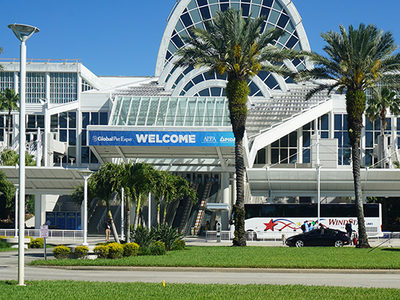ST. PAUL, MINN. — MBOLD, a coalition of Minnesota companies working toward climate change and food demand solutions in the agriculture industry, announced May 4 a collaborative effort to expand recycling infrastructure for flexible films. The collaboration aims to support the circular economy for flexible packaging in the Upper Midwest and increase the availability of post-consumer recycled (PCR) resins.
MBOLD members involved in the project include Blue Buffalo’s parent company General Mills, Cargill, Land O’Lakes, Inc., Ecolab, Target, Schwan’s Company and the University of Minnesota. The group will work with film recycler Myplas USA, Inc. and film manufacturer Charter Next Generation to expand regional recycling infrastructure and applications for PCR resins.
“We are excited to collaborate across industries to advance recycling innovation for flexible films used in product packaging and more,” said Jeff Harmening, chairman and chief executive officer of General Mills and co-chair of MBOLD. “This initiative reflects General Mills’ commitment to regenerating our planet and shows what’s possible when we work together to find creative solutions to shared challenges.”
As part of the initiative, MBOLD members have invested in a state-of-the-art flexible film recycling plant in Rogers, Minn., which will be established by Myplas USA. Slated for completion in the first half of 2023, the 170,000-square-foot facility will use mechanical recycling methods to recycle an estimated 90 million lbs of low- and high-density polyethylene packaging films per year.
General Mills, Schwan’s Company and Charter Next Generation led a combined $9.2 million equity investment in the new Myplas facility, which was also supported by Target and Ecolab. The facility is expected to employ 300 people at full capacity.
“Myplas has a deep passion for plastics recycling, and we’re proud to establish our first US plant and our US headquarters in Minnesota,” said Andrew Pieterse, chief executive officer of Myplas USA. “Our partners’ commitment, investment and innovative thinking, paired with Myplas’ technical expertise, will be transformative for the entire region. We can’t wait to get started.”
Aside from the production of PCR resins for reuse in a variety of new packaging products, the partnership aims to curb plastic waste and reduce greenhouse gas emissions by extracting value from otherwise wasted flexible films.
“We are building a regional ecosystem to support circular approaches for flexible film,” said JoAnne Berkenkamp, managing director of MBOLD. “By working together, we are catalyzing a new circular economy that will expand access to film recycling in the Upper Midwest, increase the supply of recycled resin for use in new film products, and cut emissions.”
According to MBOLD, between 12 billion and 15 billion lbs of flexible packaging and films are used in the United States per year across a wide range of industries. It is estimated that only 5% of these flexible films are recycled each year, with the rest winding up in landfills, the environment, or being incinerated.
According to The Association of Plastic Recyclers, recycled polyethylene or PCR resins can improve the life cycle benefits of plastics, including a 65% reduction of energy used, a 59% reduction in water consumption, and a 71% reduction in global warming potential compared to virgin plastics.
To support the inclusion of PCR resins into new flexible films, Charter Next Generation will purchase recycled polyethylene resin from Myplas. Those resins will then be evaluated for product applications by Cargill, General Mills, Land O’Lakes, Schwan’s Company and the University of Minnesota. Cargill, Land O’Lakes, Schwan’s Company and the University of Minnesota will also collaborate to identify opportunities to direct film waste to Myplas for recycling.
“This collaboration with MBOLD and Myplas USA is forging a new future for packaging innovation,” said Kathy Bolhous, chief executive officer of Charter Next Generation. “It will broaden our sustainable film portfolio, create an urgently needed solution for the region and help meet the growing demand for recycled content in packaging.”
Plastic recycling organizations, brands and local stakeholders will also provide financial support to Myplas for the development of its recycling facility in Rogers. Multi-million-dollar debt financing will be provided by The Alliance to End Plastic Waste and Closed Loop Partners, and the Minnesota Department of Employment and Economic Development will provide $1 million through the Minnesota Investment Fund and $450,000 from the Minnesota Job Creation Fund.
“This is about protecting our environment and driving innovation,” said Steve Grove, commissioner of the Minnesota Department of Employment and Economic Development. “It’s about bringing a new industry to Minnesota and showing the world how the private and public sectors can come together to solve problems. The State of Minnesota is proud to support this effort, and we’re grateful to the companies that made it happen.”
MBOLD is an initiative founded by Greater MSP, the Minneapolis Saint Paul Regional Economic Development Partnership.
Read more about plastic recycling in the pet industry.




